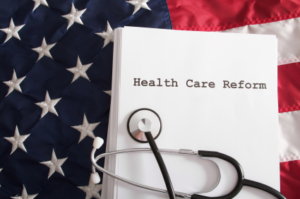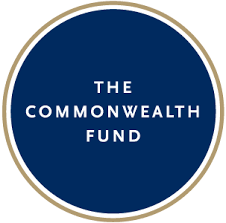ACA Repeal Would Drive Up Uninsured, Uncompensated Care
At the same time that the Trump administration announced that it has asked a federal court to repeal the entire Affordable Care Act, the Urban Institute has published a report detailing the potential impact of the health care reform law’s repeal.
 According to the Urban Institute report, repealing the entire Affordable Care Act would add almost 20 million Americans to the ranks of the uninsured. Medicaid and CHIP enrollment would fall by 15.4 million people and millions of others would lose the tax credits they used to purchase insurance. Some would purchase insurance with limited benefits and individual plan premiums would rise while others would go uninsured.
According to the Urban Institute report, repealing the entire Affordable Care Act would add almost 20 million Americans to the ranks of the uninsured. Medicaid and CHIP enrollment would fall by 15.4 million people and millions of others would lose the tax credits they used to purchase insurance. Some would purchase insurance with limited benefits and individual plan premiums would rise while others would go uninsured.
In addition, repeal of the Affordable Care Act would lead to an 82 percent increase in hospital uncompensated care, to more than $50 billion. About half of the states would see the amount of uncompensated care provided by their hospitals double, the Urban Institute estimates.
Repeal of the Affordable Care Act would pose an especially great financial challenge for Pennsylvania safety-net hospitals because they care for so many Medicaid- and CHIP-covered and low-income patients who might lose their coverage if the reform law is repealed. About 700,000 new people have enrolled in the state’s Medicaid program since the state implemented the Affordable Care Act’s optional Medicaid expansion.
Learn more from the Healthcare Dive article “Killing ACA would lead to huge spikes in uncompensated care” and from the Urban Institute report State-by-State Estimates of the Coverage and Funding Consequences of Full Repeal of the ACA.
 Currently, Medicaid DSH allotments to the states are scheduled to be reduced $4 billion in FY 2020 and then $8 billion a year in FY 2021 through FY 2025. MACPAC recommends that the cuts be reduced to $2 billion in FY 2020, $4 billion in FY 2021, $6 billion in FY 2022, and $8 billion a year from FY 2023 through FY 2029.
Currently, Medicaid DSH allotments to the states are scheduled to be reduced $4 billion in FY 2020 and then $8 billion a year in FY 2021 through FY 2025. MACPAC recommends that the cuts be reduced to $2 billion in FY 2020, $4 billion in FY 2021, $6 billion in FY 2022, and $8 billion a year from FY 2023 through FY 2029.
 If the Affordable Care Act, or Obamacare, is repealed and not replaced, over a million Pennsylvanians could lose access to health care and tens of thousands of people – people who are our friends, our neighbors, and our family members that are currently receiving treatment for a substance use disorder – would lose insurance coverage and no longer be able to afford their treatment.
If the Affordable Care Act, or Obamacare, is repealed and not replaced, over a million Pennsylvanians could lose access to health care and tens of thousands of people – people who are our friends, our neighbors, and our family members that are currently receiving treatment for a substance use disorder – would lose insurance coverage and no longer be able to afford their treatment. Included in this edition are stories about:
Included in this edition are stories about: The uninsured rate in the U.S., 20 percent before the Affordable Care Act took effect, is now 13 percent.
The uninsured rate in the U.S., 20 percent before the Affordable Care Act took effect, is now 13 percent. This conclusion is drawn in a new study from the Georgetown University Health Policy Institute based on interviews with leaders of eleven hospital systems and federally qualified health centers (FQHCs) in seven states: four that expanded their Medicaid programs and three that did not.
This conclusion is drawn in a new study from the Georgetown University Health Policy Institute based on interviews with leaders of eleven hospital systems and federally qualified health centers (FQHCs) in seven states: four that expanded their Medicaid programs and three that did not.
